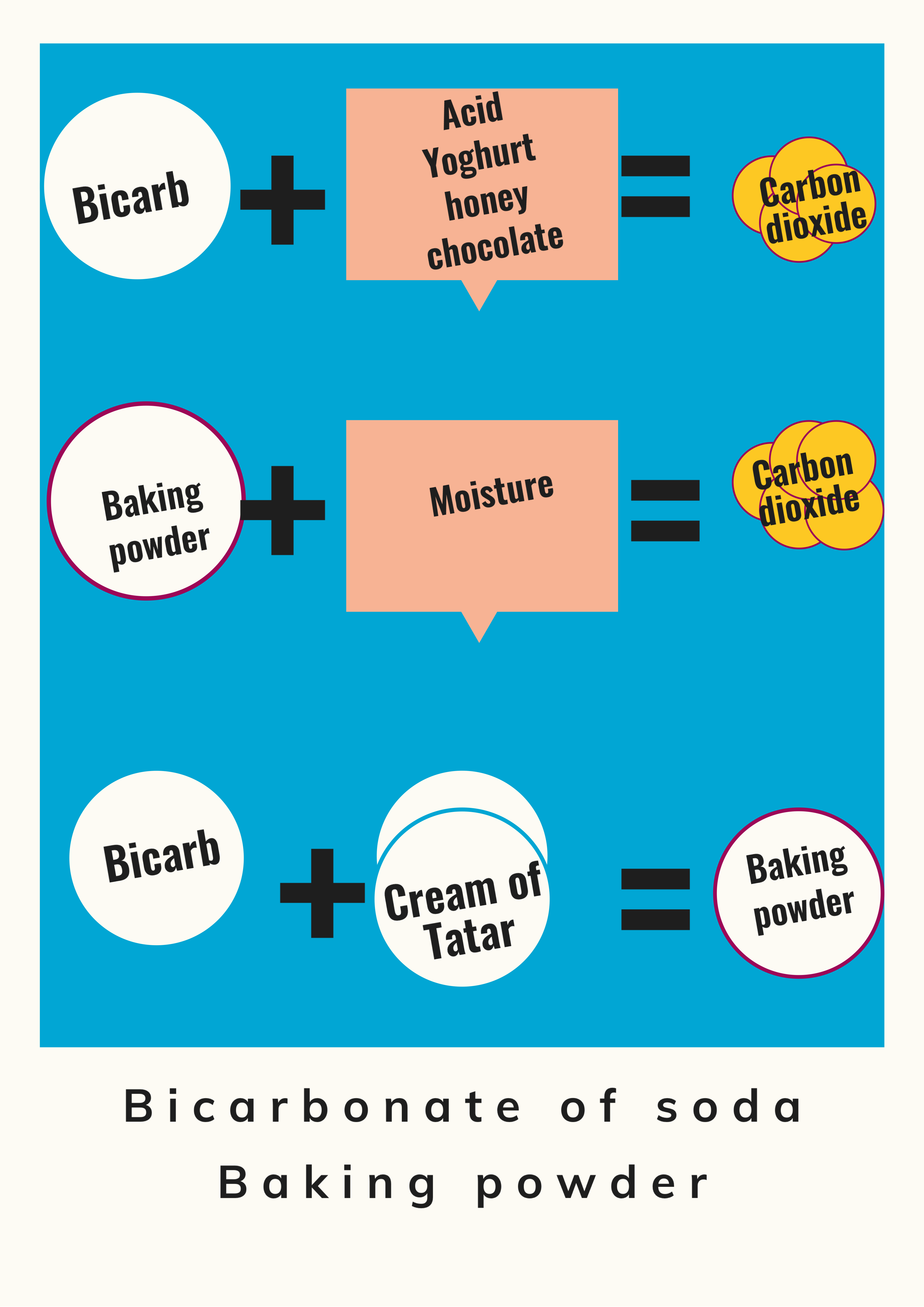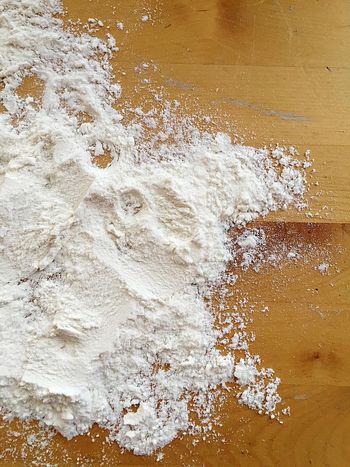
Bicarbonate of soda acts as a pure raising agent, but it can't work its magic alone. It requires moisture and an acidic element to trigger a chemical reaction that causes food to rise. This reaction is a classic science experiment we might recall from school: mixing bicarbonate of soda (a base) with vinegar (an acid) results in an eruption of bubbles. The same principle applies to our baking.
When a recipe calls for bicarbonate of soda, it almost always pairs it with some form of acid, such as buttermilk, brown sugar, yogurt, lemon juice, vinegar, and more. This acid reacts with the bicarbonate of soda, producing carbon dioxide bubbles that give our baked goods their airy texture.
However, it's important to use bicarbonate of soda judiciously, as it's potent—about 3-4 times stronger than baking powder. Too much bicarbonate of soda without sufficient acid can lead to an undesirable soapy or metallic taste in your baked creations.
Baking Powder:

Baking powder, on the other hand, simplifies the process by combining bicarbonate of soda with an acidic component, already pre-mixed. This means all you need to add is moisture to kickstart the leavening action. Most baking powders available are double-acting, meaning they react upon contact with moisture and again when exposed to heat during baking.
One notable characteristic of baking powder is its neutral taste, making it suitable for recipes with other neutral-flavoured ingredients like milk.
Useful Tips:
- Self-raising flour is essentially plain flour with baking powder added. If you find yourself without self-raising flour for a recipe, simply add half a teaspoon of baking powder for every 100g of plain flour.
- Once your batter or dough is mixed with leavening agents, it's essential to get it into the oven promptly. Delaying can cause the protein structure that traps air bubbles to collapse, leading to less-than-desirable results.
- Ensure thorough sifting of bicarbonate of soda, as it can form lumps. Precision in measurements is crucial to avoid an overly tangy or soapy taste.
- Always check the use-by dates on your leavening agents, as older ones may lose their effectiveness
